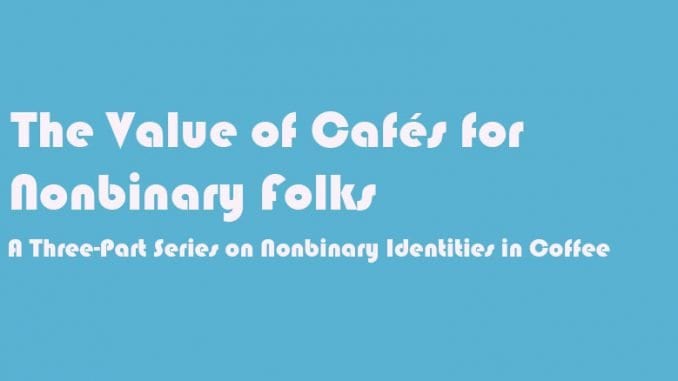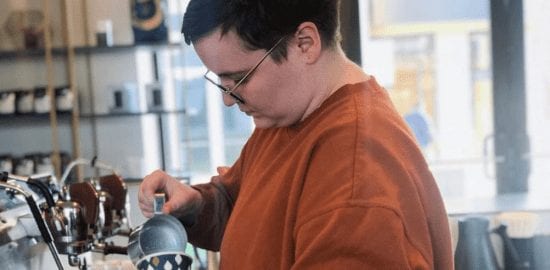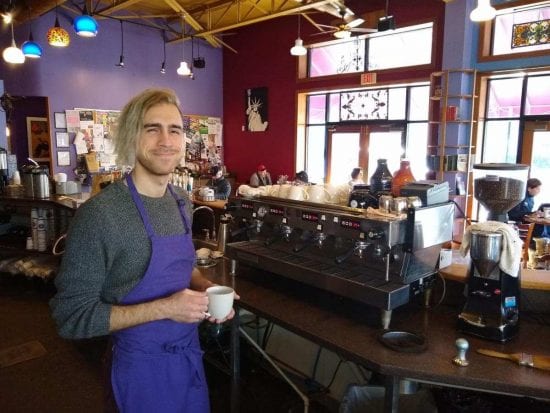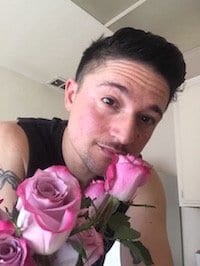
We present the first of a three-part series on nonbinary identities in coffee.
BY MARK VAN STREEFKERK
BARISTA MAGAZINE ONLINE
If you hang out at specialty-coffee shops, chances are high that you’ve heard someone mention their pronouns. Some popular pronouns are she/her, they/them, he/him, ze/hir, and so many more. Pronouns are important for everybody, and especially for people who don’t identify within the binary genders of male or female.
While gender diversity and variance has been observed throughout history, it has recently taken up space in popular culture as more people publicly claim nonbinary identities. A new study shows that half of Americans recognize gender as a spectrum, and the same study found that 2.5% of people in the U.S. between the ages of 18 and 24 identify as nonbinary. Merriam-Webster announced “they” was the word of 2019, and the American Dialect Society deemed the pronoun as the word of the year, as well as the decade.
In this three-part online series, we focus on nonbinary folks—individuals who don’t identify as solely male or female—who work in coffee. We’ll discuss how they feel valued in cafés, advice to and from nonbinary coffee workers, and how cafés can support their nonbinary employees.
Bo Hancoch and Phoenix Cerny didn’t start out as coffee enthusiasts. They’ve faced challenges to being accepted in their places of work, but both say working in coffee is exactly where they want to be for now. Bo and Phoenix prove that when nonbinary folks feel comfortable being their full selves at work, so does everyone else—no matter their gender.

In Salt Lake City, Bo was raised in the Church of Jesus Christ of Latter-day Saints, where congregants are prohibited from drinking coffee. Bo left the church after their grandma died, and was “hired as a barista at a shop that my aunt and uncle owned. It’s a coffee-flower shop, and it sparked my interest in both coffee and floral design. It’s also the shop where I met my wife,” Bo says.
Bo observes that while Salt Lake City is praised as an unexpected LGBTQ+ mecca, most people there aren’t familiar with nonbinary identities. “Most of the population in SLC needs to be educated on they/them pronouns, and when I try to tell people I’m not a woman, they are shocked and often tell me I’m wrong,” they say.
Despite the fact that “every single customer misgenders me,” working in coffee is worth it for Bo, who feels the most supported by their coworkers. “When I tell someone my preferred pronouns, and they get it immediately, and their eyes brighten, and I finally feel accepted, I know I chose the right career path. I know I wouldn’t have the privilege of acceptance if I wasn’t part of a counterculture movement within my city, and I’m so grateful to the coffee community I see in other states. I know if I stay strong and keep my head up, I can be the change I want to see.”

Phoenix works at Tipico Coffee and is a shift lead at SPoT Coffee in Buffalo, N.Y. “I think being out in the workplace is something that just gives me a fundamental comfort, even if it’s something that I would say is an imperfect experience,” they say.
In addition to barista work, Phoenix had also worked at craft cocktail bars, places where they didn’t feel supported enough to fully come out as nonbinary. When more hours were available at the café, Phoenix left the cocktail bar in favor of an environment they felt more comfortable in. “I’m still continuing to navigate what identity means to me, but that thankfully work is not something that prohibits me in that regard because of how the coffee environment just tends to be a magnet [for LGBTQ+ people],” Phoenix explains. “Also just being able to be myself and meet lots of other queer people who come to the café, that’s something that is incredibly rewarding, to be a person in a position to make this space be hospitable for other queer people.”
Employing and supporting nonbinary people encourages freedom and identity in café culture. When all coffee workers and customers feel free to be themselves, so does everyone else, including LGBTQ+ customers—and that’s good community.

ABOUT THE AUTHOR
Mark Van Streefkerk is Barista Magazine’s social media content developer and a frequent contributor. He is also a freelance writer, social media manager, and novelist based out of Seattle. If Mark isn’t writing, he’s probably biking to his favorite vegan restaurant. Find out more on his website.
